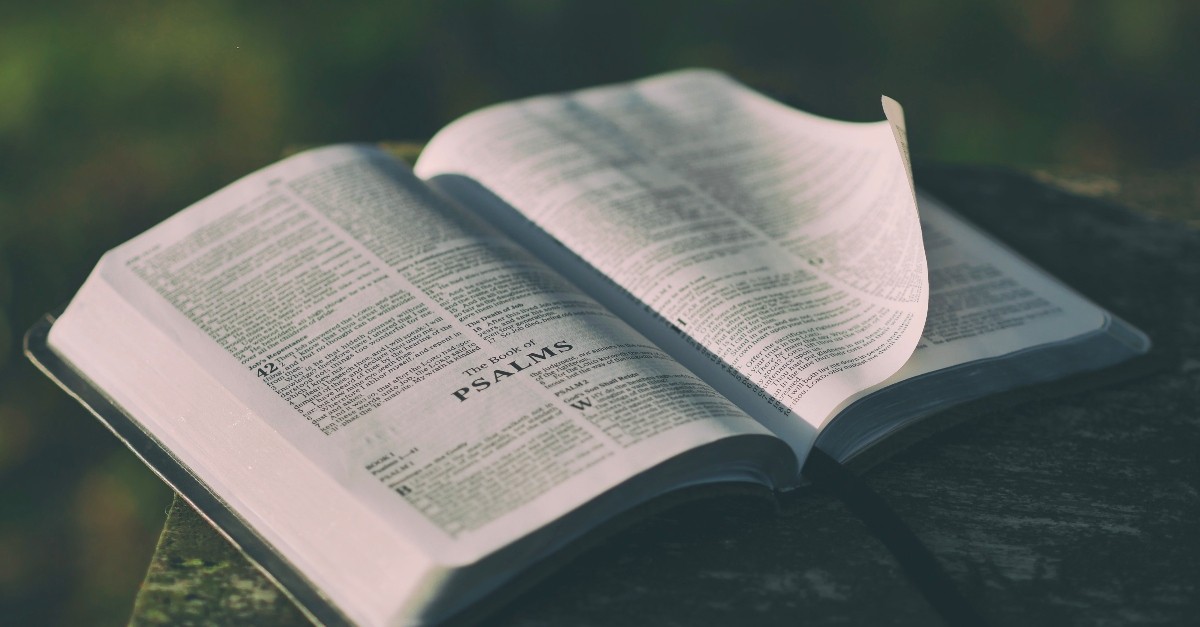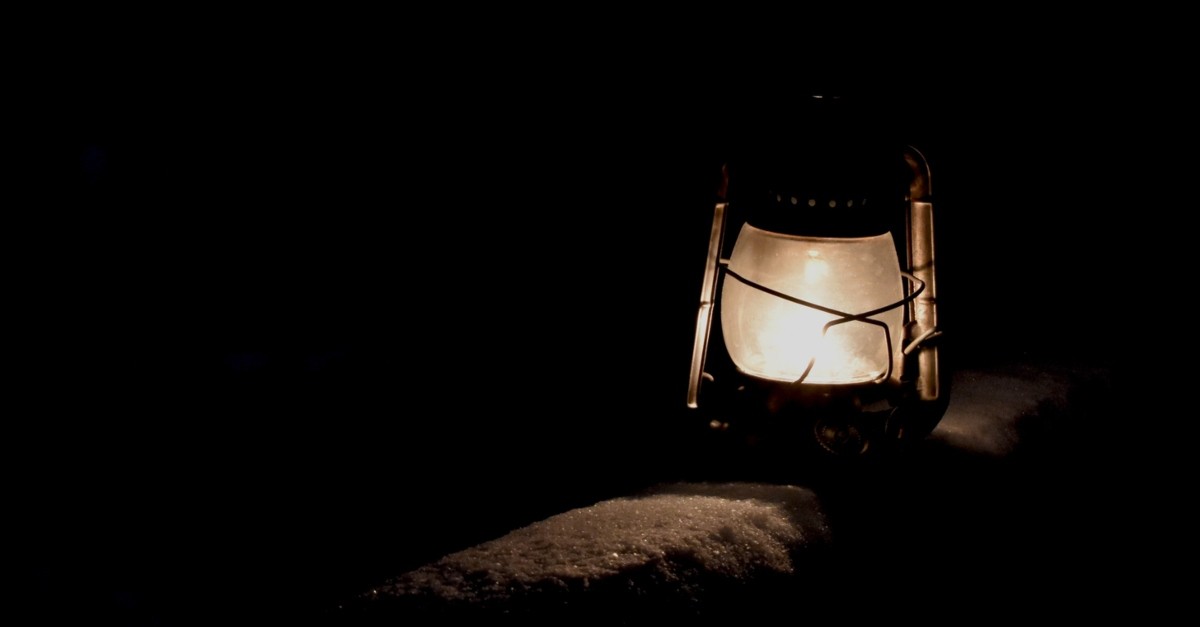
Compline is the evening hour of prayer associated with the practice of “praying the hours.” Scripture encourages every believer to have a life built around a rhythm of prayer and Bible reading.
Moses wrote in Deuteronomy 6:7 ESV, “You shall teach them diligently to your children, and shall talk of them when you sit in your house, and when you walk by the way, and when you lie down, and when you rise.”
And Paul wrote in Ephesians 6:18 ESV, “praying at all times in the Spirit, with all prayer and supplication. To that end, keep alert with all perseverance, making supplication for all the saints.”
Psalm 119:164 ESV proclaims, “Seven times a day I praise you for your righteous rules.” This verse is often cited as the original inspiration for the hours ending with Compline, the final hour of daily prayer observed before retiring to sleep.
While originally praying “the Divine Hours” or “The Daily Office” was primarily an Anglican or Catholic practice, it is now embraced by Protestants seeking a deeper connection with Jesus. Modern-day Christians often explore monastic disciplines hoping to “pray without ceasing” as Paul taught in 1 Thessalonians 5:17.
Some have been inspired through the spiritual discipline teachings of people like Richard Foster and Dallas Willard to incorporate specific hours of prayer into their days. Others observe that various faiths stop throughout their day to pray and believe the Living God deserves no less from His followers.
To this end, let's specifically look at Compline. Where did Compline prayer begin?
Photo credit: Unsplash/Amaury Gutierrez

A Brief History of Compline Prayer
Throughout time, followers of the Living God have offered prayers and worship, not only in weekly corporate worship but also in daily prayer in the morning, at noon, and in the evening. Different denominations have formalized this and even given names to various hours.
In some denominations, particularly Anglican, believers stop to pray at seven specific hours through the day and evening following a universal liturgy such as is found in The Book of Common Prayer. In the Episcopal Church, this practice (including Compline) is known as The Daily or The Divine Office, and along with prayer, it involves Bible readings from the Psalms, the Old Testament, and the New Testament. The Catholic church has a similar practice known as “the Liturgy of Hours,” which is closely associated with monastic life.
The exact genesis of Compline is debated but the formal practice likely originated in the lives and habits of the monks who built their days around prayer in the Middle Ages.
St. Benedict formalized the Daily or Divine Office into seven hours:
- Lauds: Dawn— varies seasonally
- Prime: Early morning
- Terce: Around 9am
- Sext: Noon
- None: Around 3pm
- Vespers: Sunset —varies seasonally
- Compline: Before bed, around 7pm
The nighttime office includes:
- Vigil and Nocturn: Watches of the night
- Matins: 3am to dawn
Compline is a time to reflect on the day, to confess any sins, and to express one’s confidence in God’s protection through the hours of the night when the believer submits to sleep and rest.
Photo credit: ©GettyImages/Viacheslav Peretiatko

How Compline Prayers Can Transform Your Evenings
The hour before sleep is typically quiet (or relatively so), lending itself to reflection. It may be an hour of regret as we consider sinful actions, neglected obedience, or unfinished work. Or it may involve anxiety or fear depending on circumstances or the attitudes of our hearts. Many find it an hour of gratitude, too, as they consider all that God has done in them, through them, and for them that day.
Compline prayers include—reflection, confession or lament, trust in God for protection or provision, and gratitude. This pattern of prayer is similar to many psalms. Psalms often begin with the writer’s reflection on God or life. Then, they would express lament for current troubles or confess specific sins. Then, as the psalmist put his eyes on God, his attitude would inevitably return to confidence and trust in God’s provision, protection, or care and the psalm ends with gratitude and praise.
Set aside a quiet hour prior to bedtime. Reflect on the happenings of your day or journal what you recall. Where was God at work? What do you regret or would you have done differently? What did you learn? What are your concerns?
Then, consider all you know about God. Remember His faithfulness in the past and His promises to you. For what are you most grateful? What praise can you offer Him?
Close your time by praying. Consider praying one of the psalms that centuries of Christians before you have prayed at Compline.
The following are some examples:
Photo credit: ©GettyImages/Tony Rowell

What Does a Typical Compline Prayer Look Like?
For centuries, Christians have prayed Psalm 4 at Compline:
“Answer me when I call, O God of my righteousness!
You have given me relief when I was in distress.
Be gracious to me and hear my prayer!
O men, how long shall my honor be turned into shame?
How long will you love vain words and seek after lies? Selah
But know that the Lord has set apart the godly for himself;
the Lord hears when I call to him.
Be angry, and do not sin;
ponder in your own hearts on your beds, and be silent. Selah
Offer right sacrifices,
and put your trust in the Lord.
There are many who say, “Who will show us some good?
Lift up the light of your face upon us, O Lord!”
You have put more joy in my heart
than they have when their grain and wine abound.
In peace I will both lie down and sleep;
for you alone, O Lord, make me dwell in safety.” (ESV)
Psalm 63:5-8 ESV provides a simple prayer of trust in God.
“My soul will be satisfied as with fat and rich food,
and my mouth will praise you with joyful lips,
when I remember you upon my bed,
and meditate on you in the watches of the night;
for you have been my help,
and in the shadow of your wings I will sing for joy.
My soul clings to you;
your right hand upholds me.”
Photo Credit: ©Unsplash/Aaron Burden

What is a Short Compline Prayer?
Psalm 134 is brief but powerful.
“Come, bless the Lord, all you servants of the Lord,
who stand by night in the house of the Lord!
Lift up your hands to the holy place
and bless the Lord!
May the Lord bless you from Zion,
he who made heaven and earth!” (ESV)
A short centuries-old Compline prayer is:
“Lighten our darkness, Lord, we pray, and in your great mercy defend us from all perils and dangers of this night, for the love of your only Son, our Savior Jesus Christ. Amen”
This ancient hymn, attributed to Ambrose of Milan will also serve as a Compline prayer:
Before the ending of the day,
Creator of the world, we pray
That Thou with wonted love wouldst keep
Thy watch around us while we sleep.
O let no evil dreams be near,
Nor phantoms of the night appear;
Our ghostly enemy restrain,
Lest aught of sin our bodies stain.
Almighty Father, hear our cry
Through Jesus Christ our Lord most high,
Who with the Holy Ghost and Thee
Doth live and reign eternally.
Or pray Psalm 131:1-2 ESV
“O Lord, my heart is not lifted up;
my eyes are not raised too high;
I do not occupy myself with things
too great and too marvelous for me.
But I have calmed and quieted my soul,
like a weaned child with its mother;
like a weaned child is my soul within me.”
Photo credit: ©Getty Images/James Robinson

Pray Psalm 91 at Compline on Troubled Nights
A longer psalm traditionally read and prayed at Compline is Psalm 91. This beautiful psalm is an expression of complete trust and confidence in God’s ability and His willingness to protect all who “dwell” in Him. The psalmist foreshadows Jesus’s words to His disciples in John 15:17 (ESV): “If you abide in me, and my words abide in you, ask whatever you wish, and it will be done for you.” Some who dwell in God’s shelter face the night in relative comfort and safety, but others live in places of hostility, conflict, violence, or even war. This Psalm can be a comfort for all.
“He who dwells in the shelter of the Most High
will abide in the shadow of the Almighty.
I will say to the Lord, ‘My refuge and my fortress,
my God, in whom I trust.’
For he will deliver you from the snare of the fowler
and from the deadly pestilence.
He will cover you with his pinions,
and under his wings you will find refuge;
his faithfulness is a shield and buckler.
You will not fear the terror of the night,
nor the arrow that flies by day,
nor the pestilence that stalks in darkness,
nor the destruction that wastes at noonday.
A thousand may fall at your side,
ten thousand at your right hand,
but it will not come near you.
You will only look with your eyes
and see the recompense of the wicked.
Because you have made the Lord your dwelling place—
the Most High, who is my refuge—
no evil shall be allowed to befall you,
no plague come near your tent.
For he will command his angels concerning you
to guard you in all your ways.
On their hands they will bear you up,
lest you strike your foot against a stone.
You will tread on the lion and the adder;
the young lion and the serpent you will trample underfoot.
‘Because he holds fast to me in love, I will deliver him;
I will protect him, because he knows my name.
When he calls to me, I will answer him;
I will be with him in trouble;
I will rescue him and honor him.
With long life I will satisfy him
and show him my salvation.’” ESV
Photo credit: Juan Pablo Serrano Arenas/Pexels
Originally published Monday, 03 February 2025.

